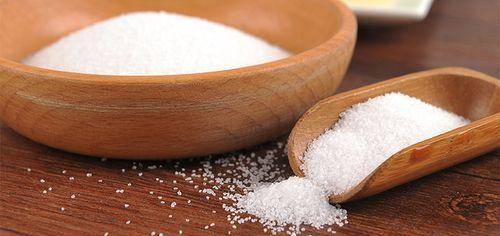Hypertension, this increasingly common “silent killer” in modern society, is silently threatening people’s health. For hypertensive patients, controlling blood pressure and preventing severe complications such as cerebral hemorrhage are tasks that cannot be ignored in daily life.
To achieve this goal, dietary adjustments are crucial. Today, let’s explore in detail three types of foods that hypertensive patients should try to consume less in daily life in order to better manage their health.
Salt, as the most common seasoning in daily life, has a close relationship with the occurrence and development of hypertension. A high-salt diet can lead to an excessive amount of sodium ions in the body, which in turn causes water and sodium retention, increases blood volume and cardiac burden, ultimately leading to elevated blood pressure.
Therefore, hypertensive patients should try to reduce the intake of high-salt foods in their daily diet, such as pickled foods, salted vegetables, salted fish, etc. Furthermore, they should be wary of hidden salt in seemingly healthy foods, such as processed foods, fast food products, etc. It is recommended that hypertensive patients limit their daily salt intake to less than 6 grams to maintain stable blood pressure.
High-fat foods, especially saturated fats and trans fats, are foods that hypertensive patients should try to avoid. A high-fat diet not only leads to increased blood lipids, accelerates the process of atherosclerosis, but may also trigger chronic diseases such as obesity, diabetes, further worsening the condition of hypertension.
Therefore, hypertensive patients should try to reduce the consumption of high-fat foods such as animal offal, fatty meat, fried foods in their daily diet. At the same time, they should choose healthy fat sources like olive oil, fish oil, nuts as much as possible. This way, not only can the body’s need for fats be met, but it can also effectively prevent the occurrence of cardiovascular diseases.
High-calorie foods are one of the main causes of obesity, which is a risk factor for hypertension. Therefore, hypertensive patients should try to avoid consuming high-calorie foods in daily life. High-calorie foods often come with high sugar, high fat characteristics, such as sweets, chocolates, cakes, and fast foods like western fast food, fried chicken, etc.
These foods are not only high in calories but also low in nutritional value, long-term intake can not only lead to weight gain but may also trigger a series of chronic diseases. To maintain stable blood pressure, hypertensive patients should choose low-calorie, high-fiber, high-vitamin foods as much as possible, such as vegetables, fruits, whole grains, etc. This way, not only can the body’s nutritional needs be met, but weight and blood pressure can be effectively controlled.
Hypertensive patients should try to avoid consuming high-salt, high-fat, and high-calorie foods in daily life. These foods may not only lead to elevated blood pressure but also trigger a series of cardiovascular and chronic diseases. To maintain their health, hypertensive patients should embrace the concept of healthy eating, choose low-salt, low-fat, low-calorie foods, and maintain a balanced dietary structure.
Furthermore, they should regularly monitor blood pressure and undergo check-ups to promptly detect and address health issues, including hypertension. Only in this way can we stay away from the threat of severe complications like cerebral hemorrhage and enjoy a healthy, fulfilling life.


